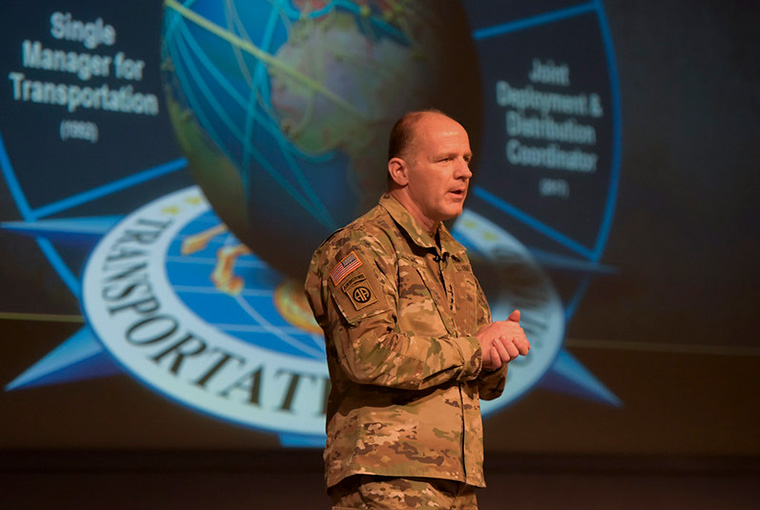U.S. Transportation Command Leader Discusses Power Projection in Great-Power Competition

U.S. Army Gen. Stephen Lyons, commander of U.S. Transportation Command, spoke to U.S. Naval War College students on Oct. 22 about the importance of power projection as the nation faces peer competitors.
"Our ability as a nation to be able to project military power over global distances at our time and place of choosing is indeed a strategic, competitive advantage," Lyons told his audience in Spruance Auditorium.
"It presents multiple options for senior leadership, and it creates multiple dilemmas for potential adversaries," he said.
USTRANSCOM, based at Scott Air Force Base in western Illinois, has overseen air, land and sea transportation for the Department of Defense since the command was established in 1987. Its motto is "Together, We Deliver."
Lyons said the 2018 National Defense Strategy has changed the way the U.S. military thinks about strategic logistics and the nation's ability to sustain forces as they travel across oceans and between continents.
"That fundamentally shifts the way that we have to approach and think about competition and responding to a near-peer competition," Lyons said.
The challenges are only increasing, he said. The level of complexity, the demand signature and diplomatic access are all challenges to his command's ability to project power, Lyons said.
Additionally, in day-to-day operations, adversaries are working in the "grey zone" to threaten the United States' ability to project power, Lyons said. Some of their tactics include cyber reconnaissance, intellectual property theft and foreign investment in critical global "chokepoint" locations, he said.
Looking at the map of growing investments by China and Russia around the world, Lyons said, "Think back to posture, nodes and the criticality of influence - particularly in maritime ports - and what that means, both economically and what it portends militarily."
